4 Yoga Poses to Relieve Cramps
Some evidence suggests that exercise, such as light cardio and yoga, can reduce menstrual cramps.
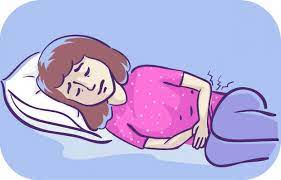
Menstrual cramps (dysmenorrhea) are throbbing or cramping pains in the lower abdomen. Many women have menstrual cramps just before and during their menstrual periods.
Menstrual cramps don't cause other medical complications, but they can interfere with school, work and social activities.
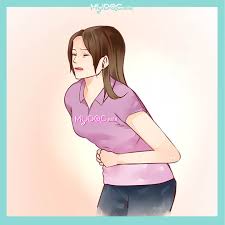

Short Cycle Treatment. If any aspect of your menstrual cycle has changed, you should keep an accurate record of when your period begins and ends, including the amount of flow and whether you pass large blood clots. Keep track of any other symptoms, such as bleeding between periods and menstrual cramps or pain. Your doctor will ask you about your menstrual cycle and medical history. He or she will perform a physical examination, including a pelvic exam and sometimes a Pap test. The doctor might also order certain tests, including the following: Blood tests to rule out anemia or other medical disorders. Vaginal cultures, to look for infections. A pelvic ultrasound exam to check for uterine fibroids, polyps or an ovarian cyst. An endometrial biopsy, in which a sample of tissue is removed from the lining of the uterus, to diagnose endometriosis, hormonal imbalance, or cancerous cells. Endometriosis or other conditions may also be diagnosed using a procedure called a laparoscopy, in which the doctor makes a tiny incision in the abdomen and then inserts a thin tube with a light attached to view the uterus and ovaries.
Different ways to remain clean and safe during periods.

Sanitary Pads
It is meant to absorb blood, vaginal mucus and other materials that your body discards during periods.
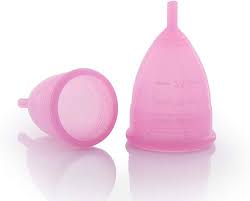
Menstrual Cups
The small, flexible cup is made of silicone or latex rubber. Instead of absorbing your flow, like a tampon or pad, it catches and collects it.

Tampons
Tampons are one method of absorbing menstrual flow during your period. Tampons are designed to be inserted into the vagina with or without an applicator.
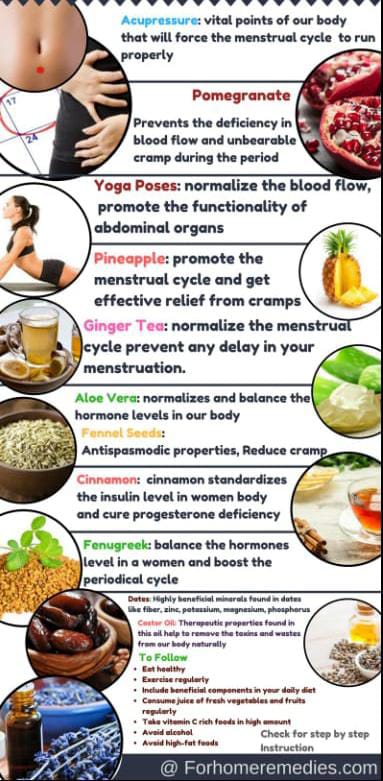
Am Back to Normal 12 ways irregular Periods
Having your period is one of those things you learn to expect will happen to you every single month, for 30 or so years of your life. It's just part of the deal (burden?) of having a female reproductive system. For some, though, their monthly flow is unpredictable. Even for the lucky ones who get it like clockwork, irregularity strikes every now and then, throwing your monthly planning for a loop.Period irregularities are very common—"they're the reason for about one third of all visits to the gynecologist," Cackovic says—and chances are you'll experience them at one time or another during your reproductive years. "Irregular" can refer to the schedule, frequency, or duration of your period. It can also be about the amount of bleeding you experience, and/or the amount of pain you feel during that time of the month.
There are a ton of different things that can make your period irregular. Here are some of the most likely.
1. Thyroid disease
If your period becomes more frequent and lighter, it can be a sign of hypothyroidism. Less frequent and heavier is a symptom of hyperthyroidism. Thyroid disease is most common in women, and typically is diagnosed in your 20s or 30s, so developing an irregular cycle during this time in life can be a sign you may have a thyroid problem.
2. Stress
Stress can cause something called anovulation, when your body does not release an egg every month like it's supposed to. Cackovic says he saw this happening while serving as a physician with the Navy Reserve in Afghanistan. "I didn’t go over there to work as a gynecologist, but I ended up holding a gynecology clinic because there were so many women [in the U.S. military] with menstrual irregularities," he says. "Some of this was just due to the extreme stress" they were experiencing serving there, he explains. When your body produces way more cortisol than usual, it can interfere with the balance of sex hormones that are responsible for regulating ovulation. Being chronically sleep deprived can also impact hormone regulation and throw off your cycle.
3. Traveling overseas
Crossing time zones can throw your hormones off similarly to the way stress does, Cackovic explains. "Some women are more susceptible than others," he says. Irregularities can also happen if you travel somewhere with such a large time difference that you accidentally take two birth control pills in one day or skip a day.
4. Polycystic ovary syndrome
Sporadic, unpredictable periods are a hallmark sign of PCOS, a hormonal imbalance that interferes with the body's ability to ovulate normally. If you begin to skip periods completely, it could be a sign of PCOS or even another hormonal imbalance. PCOS is also the most common cause of infertility in women in the U.S., yet millions have it without knowing—so seeking treatment sooner rather than later is a smart part of family planning.
5. Early menopause or premature ovarian failure
As your ovaries age, ovulation starts to happen earlier in your cycle, Alan B. Copperman, M.D., director of the division of reproductive endocrinology and infertility at Mount Sinai Hospital and medical director of Reproductive Medicine Associates of New York, tells SELF. After a few months of your period coming earlier each time, you may end up skipping a month. Typically this happens to women in their 40s as perimenopause begins, but when it happens in your 20s or 30s, it can be a sign your ovaries are declining earlier than usual. "In a woman with no risk factors, if she starts having cycle irregularity, it's more likely to be PCOS," Copperman says. But since ovulating less frequently is a sign of ovarian aging and one of the first signs of perimenopause, it's a possibility you'll want to rule out.
6. Uterine fibroids and polyps
These growths in the uterus are typically benign, but they can cause your period to be very heavy and painful. They can also cause spotting. While all women of childbearing age are susceptible to developing them, they're more common in women who are overweight or African American. "Fifty percent of African American women have fibroids," Cackovic says.
7. Pelvic inflammatory disease (PID)
PID is an infection of the reproductive organs, and is usually caused by STIs like chlamydia and gonorrhea, which can travel up into the body when undetected and untreated. Other gynecologic procedures, pregnancy, or having a miscarriage or abortion can also potentially allow bacteria to reach the reproductive organs. These infections can lead to scarring in the reproductive tract, and ultimately, infertility. Along with a change in vaginal discharge, abdominal pain, diarrhea, nausea, and fever, PID can also make your period irregular. If your cycle is off and you notice any of these other problems, get checked out ASAP.
8. Endometriosis
Women with endometriosis tend to have very heavy periods. Some may also have very painful periods, while others don't experience pain at all. Since the condition usually develops a few years after a girl's first period, those suffering from it may just think their periods are normal. In some women, endometriosis tissue may build up or even spread over time, which can amplify symptoms and cause periods to become more painful or heavier than usual. The condition can also cause spotting, according to the Mayo Clinic.
9. Gaining or losing a lot of weight
Significant changes in weight can impact your pituitary gland, in turn creating a hormone imbalance and messing with your body's ability to ovulate. Getting back to a healthy weight, though, can fix this (granted there isn't a deeper underlying cause).
10. Extreme exercise
An intense exercise regimen can cause athletic amenorrhea, or an abnormal absence of menstruation. Research suggests that the stress and energy demands intense exercise puts on the body can impact hormones and throw them off balance.
11. Birth control pills
Birth control pills use a combination of estrogen and progestin (some pills are progestin only) to prevent ovulation. Whenever you start a new type of oral contraceptive or go off another, it can make your period irregular for up to a few months as your body adjusts to its new, pill-directed cycle. Also, many birth control pills have very low estrogen content, which can cause irregular bleeding. "In the 60s, most birth control pills had high estrogen content, which made them more dangerous, but women had much better control of bleeding," Cackovic explains. "Over the last 40 or 50 years, pills have gone down in estrogen and it's made them safer, but women are more susceptible to abnormal bleeding."
12. Other medications
Anticoagulants (blood thinners) like heparin or warfarin can make your period heavier. Some antipsychotics, antidepressants, and the drug methadone can also cause irregular periods. If a new medication seems to be messing with your cycle, talk about it with your prescribing doctor.
See what's good for your health...
| Do's and Dont's | |
|---|---|
| Water and Fruits | |
| Chicken and Fish | |
| Salt and Sugar | |
| Coffee and Alcohol | |
| Dark Chocolate and Nuts | |
| Spicy Foods | |
| Ginger and Turmeric |
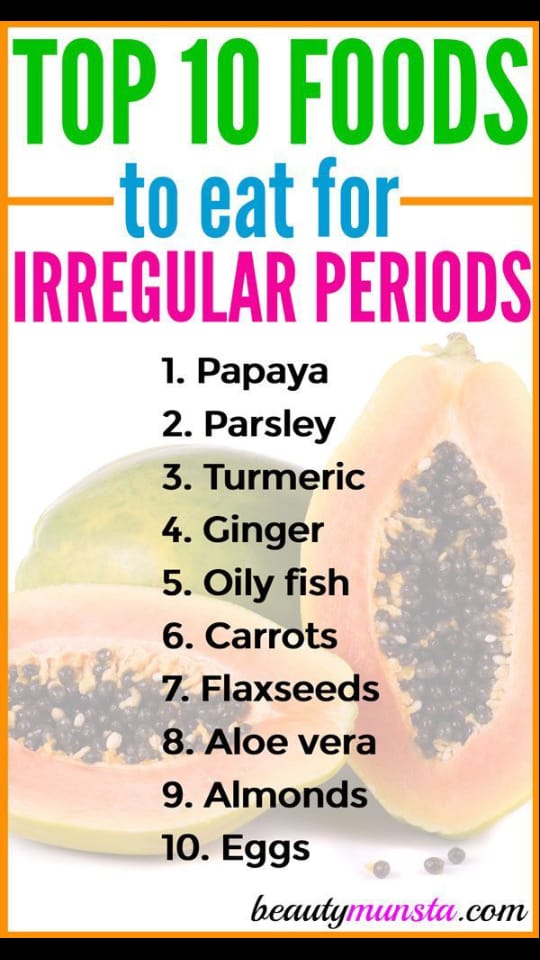
Improving Your Diet Will Help Alleviate Period Cramps
Research has shown that reducing fat and increasing vegetables in your diet may help ease monthly cramps. “A low-fat diet actually decreases overall levels of inflammation in the body,” says Aldo Palmieri MD, an ob-gyn at UCLA Health and a professor of obstetrics and gynecology at the UCLA David Geffen School of Medicine in Los Angeles. A low-fat, vegetarian diet not only helps your health generally, says Dr. Palmieri, but it can have an indirect yet noticeable effect on menstrual cramps, too.